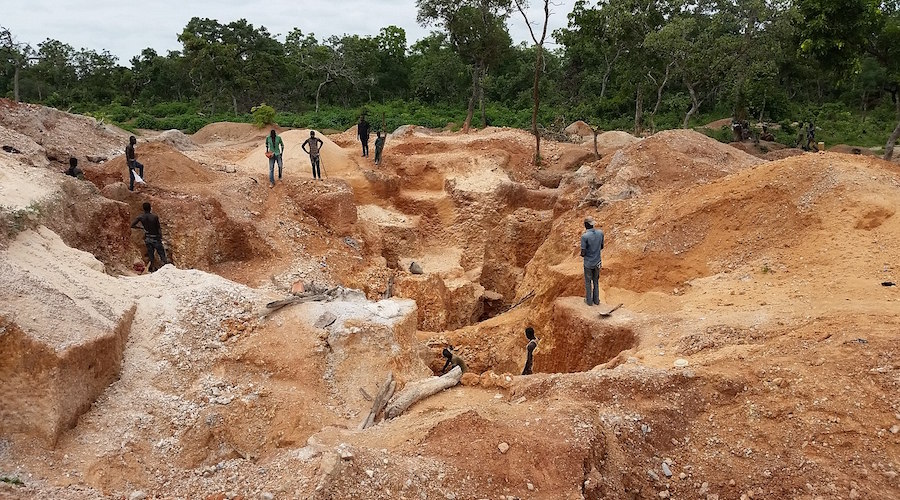
Nigeria hopes changes it has made to gold mining regulation will earn the government $500 million a year in royalties and taxes and create 250,000 jobs, President Muhammadu Buhari said on Thursday.
The reforms have made artisanal mining legal and will create gold buying centres and tax trade of the precious metal, Buhari said in a statement.
“These operations will help in diversifying our revenue base,” said Buhari.
Nigerian authorities have said illegal mining, prominent in the northwest, has fuelled widespread violence they attribute to “bandits”. Thousands of people have been killed in the region in recent years and swathes of the region are inaccessible. The military is deployed to tackle the insecurity but the conflict shows little sign of ending.
The extra revenues from gold could be a lifeline as the coronavirus pandemic and resulting global oil price crash cut off much of the state’s income.
Buhari said the country has lost a total of $3 billion from 2012 to 2018 because of illegal gold mining.
In February, Nigeria licensed two gold refineries mainly to produce gold for the central bank to hold in its reserves but also for export. The bank received its first locally-produced gold bar on Thursday.
Nigeria has largely untapped deposits of 44 minerals including gold, iron ore, coal, tin and zinc, in more than 500 locations, but mining makes up just 0.3% of the economy.
(By Felix Onuah and Paul Carsten; Editing by Frances Kerry)
Comments